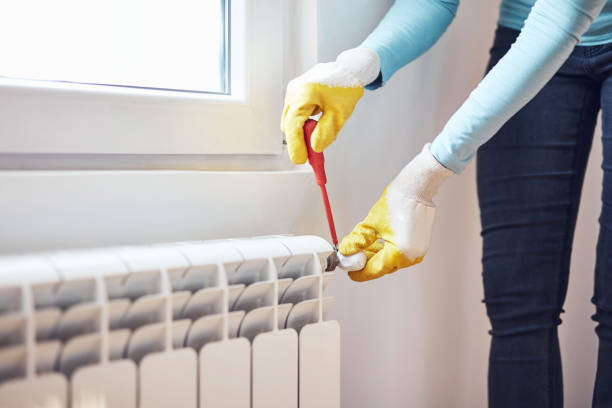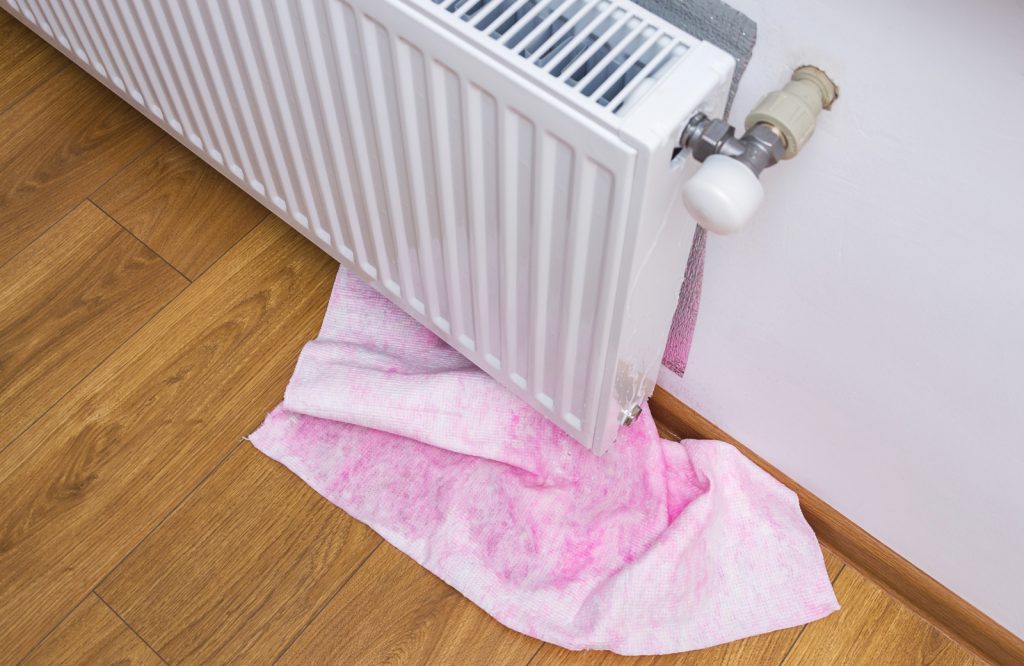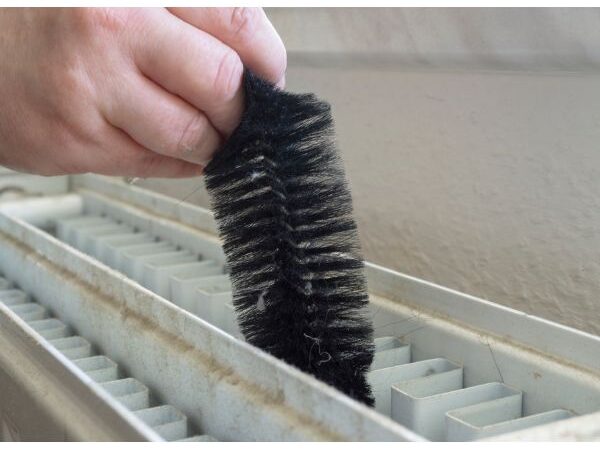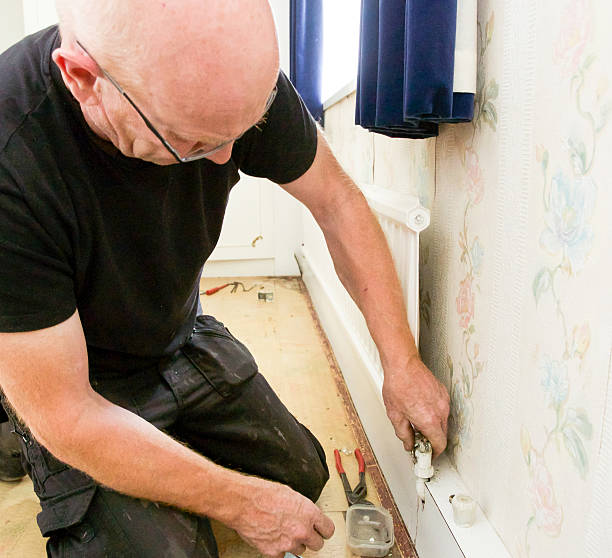Radiators are an essential part of any home’s heating system, but they require regular maintenance to ensure they are working properly. If your radiators are not working optimally, it can lead to higher energy bills, an uncomfortable home, and even damage to your walls, floors, and furniture. In this article, we’ll walk you through the steps you need to follow to properly maintain your home’s radiators and keep them in good working order.
Home Radiator Maintenance
Maintaining your radiators is essential for keeping your home comfortable and energy efficient. This includes checking for any leaks, bleeding radiators, flushing them and cleaning them regularly. Following these tips will help your radiators run efficiently and keep your home cosy.

Radiator Basics
First, let’s start with the basics. Radiators are devices that use heated water or steam to heat a room or area. They work by transferring heat from the water or steam to the surrounding air, which then circulates through the room and warms it up.
There are several types of radiators, including hot water radiators and electric radiators. Each type has its own set of maintenance requirements, but there are also some general maintenance tasks that apply to all types of radiators.
Radiator maintenance steps
Here are some key steps to follow to ensure your radiators are in good working order:
Check for leaks
If your radiators are leaking water, it can be a serious problem. Leaks can cause damage to your walls, floors, and furniture, and they can also waste energy and drive up your energy bills. To check for leaks, look for wet spots or puddles near your radiators, and listen for hissing or whistling noises. If you do find a leak, it’s important to get it fixed as soon as possible.

Bleed your radiators
If your radiators are not heating up properly, it may be due to air trapped inside them. To fix this problem, you’ll need to “bleed” your radiators. To do this, locate the small valve on the side of each radiator and use a radiator key (a small tool that looks like a flat-headed screwdriver) to turn it anticlockwise.
This will release any trapped air, allowing the hot water or steam to flow more freely and heat your radiators more effectively.
Clean your radiators
Dust and dirt can accumulate on your radiators over time, which can interfere with their ability to heat up properly. To clean your radiators, start by turning off the heating system and allowing the radiators to cool completely.
Then, use a soft cloth or brush to gently dust off the surfaces of the radiators. You can also use a vacuum cleaner with a hose attachment to remove dirt and debris from hard-to-reach areas.

Check your thermostat
Your thermostat controls the temperature of your home by regulating the flow of hot water or steam to your radiators. If your thermostat is not working properly, your radiators may not be heating up as they should.
To check your thermostat, set it to a higher temperature and wait a few minutes to see if the radiators heat up. If they don’t, there may be a problem with your thermostat or the wiring to your radiators.
Inspect your radiator valves
Radiator valves control the flow of hot water to your radiators and allow you to adjust the temperature of each room individually. If your radiator valves are not working properly, it can affect the heating performance of your radiators.
To check your radiator valves, turn the valve handle clockwise to close it completely, then turn it anticlockwise to open it. If the valve is stuck or difficult to turn, it may need to be replaced.
Protect your radiators from damage
To keep your radiators in good condition, it’s important to protect them from damage. This means avoiding placing heavy objects on top of them, leaning on them and keeping them away from water sources. It’s also a good idea to cover your radiators with protective grills or screens to prevent children or pets from coming into contact with them.
In addition to the steps outlined above, it’s also important to regularly check your radiators for any signs of wear or damage. This includes checking for rust, dents, or other visible damage. If you do find any issues, it’s important to get them fixed as soon as possible to ensure your radiators continue to work effectively.
Finally, it’s a good idea to have your radiators professionally inspected and serviced every few years. This will help ensure that they are in good working order and operating at their maximum efficiency. A good plumber will be able to identify any issues that you may have missed and recommend any necessary repairs or maintenance.

By following these tips, you can keep your radiators in top condition and ensure that your home stays warm and comfortable all year round. Don’t forget to also regularly check your home’s heating system as a whole to ensure that it is running efficiently and effectively.
What tools will you need to keep your radiators maintained?
To maintain your radiators, you’ll need a few basic tools:
- Radiator key: This is a small tool that looks like a flat-headed screwdriver and is used to open the valves on your radiators to allow air to be released (a process called “bleeding”).
- Soft cloth or brush: These are used to dust off the surfaces of your radiators and remove dirt and debris.
- Vacuum cleaner with hose attachment: This can be used to remove dirt and debris from hard-to-reach areas of your radiators.
- Protective grills or screens: These can be placed over your radiators to protect them from damage and prevent children or pets from coming into contact with them.
- Basic hand tools (such as a wrench and pliers): These may be necessary if you need to make any repairs to your radiators or their valves.
In addition to these tools, it’s important to have a working knowledge of your home’s heating system and how to use the tools listed above. If you are not comfortable performing radiator maintenance on your own, it’s best to hire a professional to do it for you.
Read related articles:
